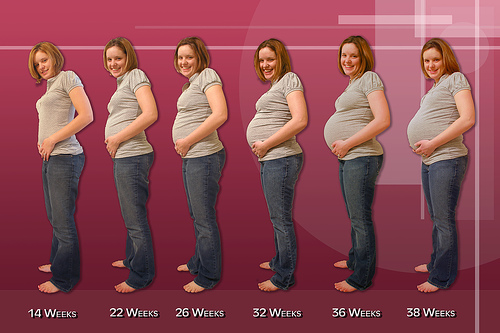
There’s no greater surprise for a woman than learning she is pregnant for the first time… except for the first time she experiences one of mother nature’s unkindest pregnancy symptoms. Heartburn!
Reflux, as heartburn is commonly called, can be one of the most frightening moments of early pregnancy, especially when the woman is unaware that it may occur at any time. the searing pain often arrives without warning and the burn can grow even more intense very quickly. Then, just when she feels about to ignite, the pain crests and fades gently away… only to rear it’s fiery head again a few minutes later. Heartburn should never come as a surprise to a pregnant woman, and that’s why I am writing about the syndrome in great detail today.
Gastro-esophageal reflux, the flow of gastric content back from the stomach into esophagus is associated with heartburn and is one of the most common complaints in pregnancy. the symptoms are generally limited to pregnancy and other than the associated discomfort, have no adverse effects on the mother or the developing fetus.
Incidence of Heartburn in Pregnancy
• this condition is extremely common and affects an estimated 80% of all pregnant women.• In the majority of cases reflux appears for the first time during pregnancy. In some however pregnancy exacerbates a pre-existing condition.• the incidence of heartburn is similar in the first or subsequent pregnancies.• Women with previous reflux during a pregnancy are more likely to have it again.• Caucasian women are likely to experience reflux earlier than black women.
Symptoms often begin early in pregnancy. However, reflux becomes notable in the 5th month and gradually worsens as pregnancy progresses due to the enlarging uterus.
In the last month as the fetal head descends into the pelvis, symptoms often improve. the majority of women experience complete resolution of their symptoms after delivery.
Causes of Heartburn in pregnancy
Reflux is caused by a combination of increased abdominal pressure and weakening of the muscle band constricting the lower esophagus (sphincter). the enlarging uterus compresses the stomach and increases the pressure within it. this increased pressure pushes fluid from the stomach into the esophagus. at the same time, the muscle band between the stomach and the esophagus, which normally prevents backward flow, becomes lax due to the effect of pregnancy hormones (estrogen and progesterone) and thus allows the stomach content to flow “backwards”.
Other more controversial explanations for reflux include:• Increased gastric acidity, making the gastric juice more irritating to the esophagus.• Increased stomach volume,• the emptying of the stomach is delayed during pregnancy,• Weakening of the muscle band between the stomach and intestine (pyloric sphincter) allowing bile to regurgitate from the small bowel into the stomach and from there into the esophagus.
Symptoms
Heartburn: the most common complaint. It presents as a sensation of burning in the chest that travels from the central part of the rib cage to the neck. Heartburn is more common and becomes more severe in the later months.Regurgitation: Passage of fluid from the stomach into the esophagus and occasionally into the mouth is extremely uncomfortable and causes significant distress. It worsens after eating and especially when reclining immediately after a meal.Less frequent symptoms include: Difficulty swallowing, chest pain, cough, wheezing, sore throat, hoarseness, asthma, ear, nose and throat abnormalities.
Diagnosis
Due to pregnancy and risk to the fetus, the diagnosis is often made by history alone. Endoscopy, telescopic visualization of the esophagus and stomach, which is usually done in the non-pregnant state, is deferred unless there are severe symptoms unresolved by routine measures. Severe symptoms may include bleeding, severe esophagitis, or strictures. (narrowing of the esophagus) other diagnoses that can present similarly such as peptic and duodenal ulcer disease, H. pylori infections, Zollinger Ellison syndrome, and gallbladder disease should all be ruled out. Women with GERD during pregnancy may be more susceptible to complications when anesthesia is administered during labor or for emergency situations due to chemical pneumonias that can occur from aspiration of gastric contents. Therefore, anesthesiologists will administer medication in labor for prevention.
Active management of heartburn can improve a pregnant woman’s quality of life, therefore my next blog will review several effective therapies.
Email to a Friend
Tags: acid reflux, esophagus pain, gastric discomfort, heartburn
this entry was posted on Wednesday, January 19th, 2011 at 1:33 pm and is filed under Conditions & Diseases. you can follow any responses to this entry through the RSS 2.0 feed. you can leave a response, or trackback from your own site.